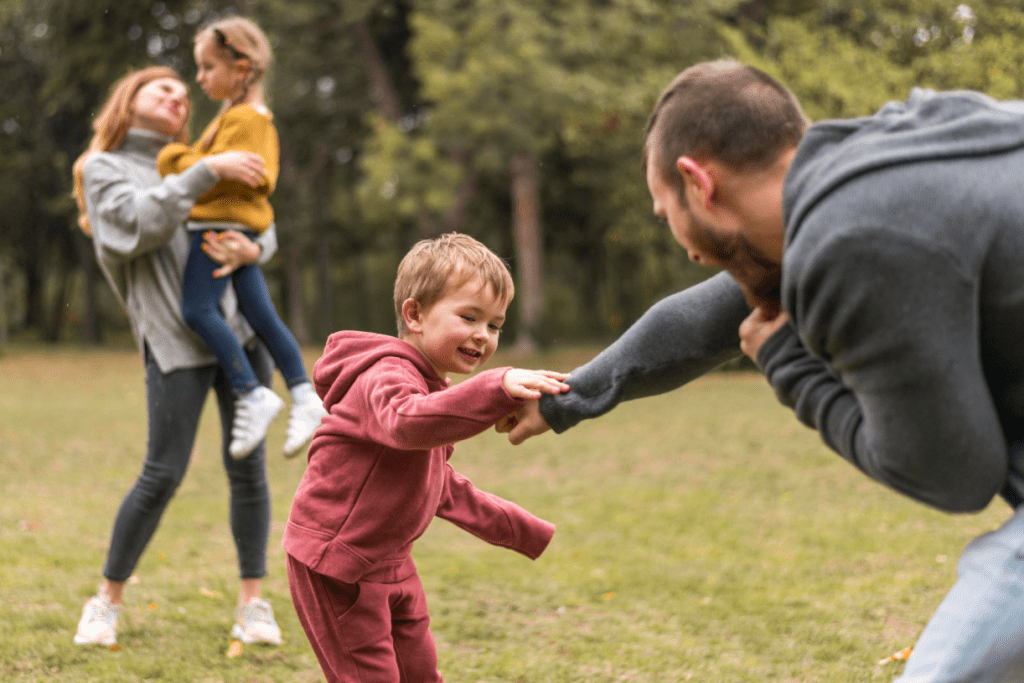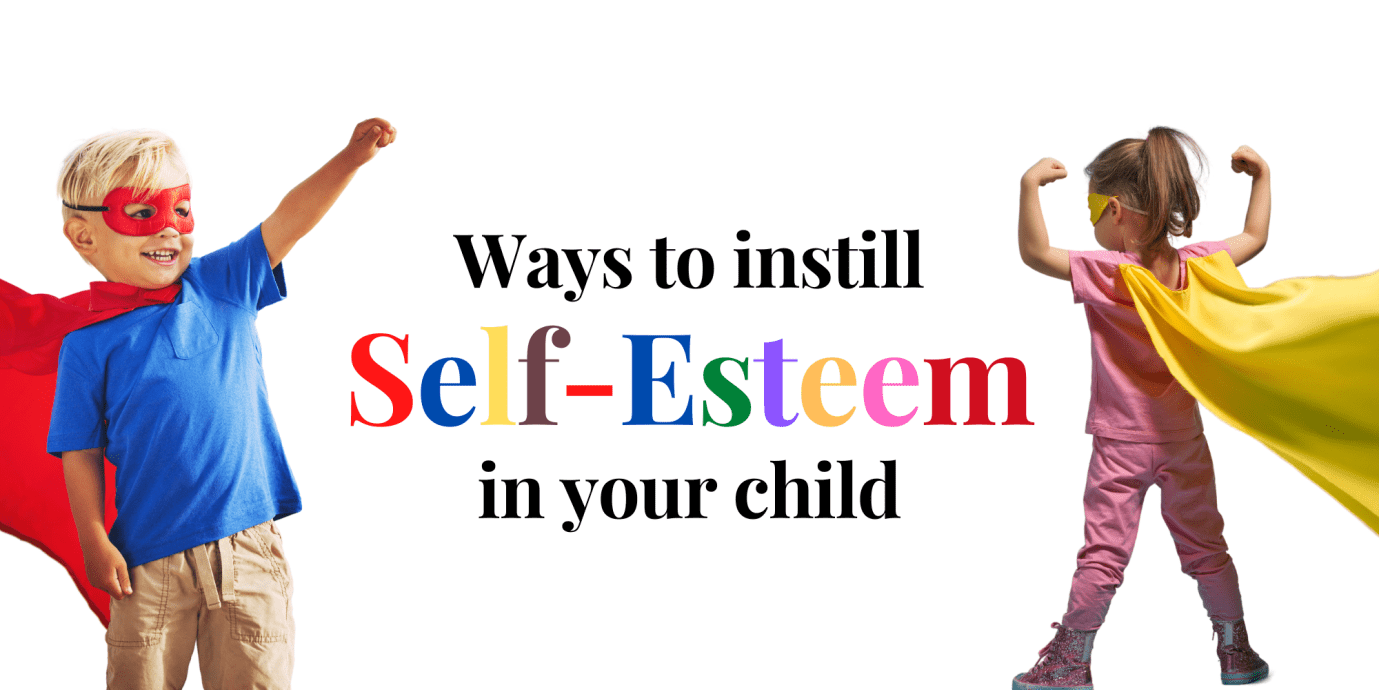When it comes to helping our kids grow into happy and well-adjusted adults, there aren’t many things more important than confidence. After all, how can anyone have a fulfilled life if they don’t feel good about who they are? Luckily, helping your child develop confidence isn’t as hard as it might seem at first.
Whether you have a timid toddler or an anxious pre-teen, these tips will help build your child’s self-esteem and give them the courage they need to face their fears head-on. Read on for some great ideas on how to help your child become more confident in themselves!
Talk About What Confidence Means
If you want to help your child build their confidence, you’ll need to start by explaining what confidence actually means. Self-esteem, which we’ll discuss later, is an overarching concept that includes confidence as one aspect. Self-esteem refers to how we feel about ourselves as a whole, whereas confidence refers to how we feel about our abilities in specific situations. To start the conversation, ask your child what confidence means to them. It’s likely that they have a very concrete idea of what it means to be confident. They probably know what confidence looks like in their friends and classmates. Then you can use that conversation to expand their understanding of the concept.
Have Discussions About Self-Esteem
You can’t talk about confidence without talking about self-esteem. Self-esteem, which refers to how we feel about ourselves as a whole, is a major factor in determining how confident a person is. If a person has low self-esteem, it can be incredibly difficult for them to feel confident. If a person has high self-esteem, it’s easier for them to feel confident. So how do we build self-esteem in children?
The first thing you’ll want to do is stop praising your child for being “smart” or “good at sports.” We all know that praise like this does not build self-esteem. In fact, it can have the opposite effect. When you praise your child for being smart or good at sports, you’re telling them that their self-worth depends on their performance. This can put a ton of pressure on young kids who are still developing their self-esteem. Instead of praising your child for being smart or good at sports, praise them for their effort and hard work. Focus on specific actions that they took that demonstrate the characteristics of a hard-working kid. For example, you might praise your child for staying with a challenging math problem until they figured it out.
Why Self-Esteem Matters
Self-esteem refers to our overall sense of confidence and satisfaction with ourselves. It’s not about ego or bragging, but rather feeling good about who you are and what you’re capable of. A person with healthy self-esteem feels good about their strengths and knows they have things to work on, too. They know that everyone has challenges, but they’re confident they can overcome them. Someone with low self-esteem, on the other hand, often has a very negative view of themselves. They may have trouble believing in their own abilities and think they aren’t good enough. Self-esteem is something we develop from a very young age, and it stays with us throughout our lives. It’s something that can be both built upon and broken down by the people around us.
How Self-Esteem Develops
While it’s important for parents to build their child’s self-esteem, it’s also important for kids to develop their own self-esteem. Children who don’t feel good about themselves will have a harder time in life as adults. Kids build self-esteem by successfully completing challenges, trying new things, and interacting with people who are positive and supportive. They need to feel safe and loved so they can take risks and learn from their mistakes. If they’re constantly criticized and put down by their parents, they may begin to view themselves negatively and have trouble feeling good about themselves.
Help Them Build Their Self-Care Skills
Self-esteem and confidence often start with childhood experiences. If your child grew up in a household where they never had the chance to succeed, where they never got help when they needed it, and where they always felt that they were falling short, they’re going to have a harder time building their self-esteem and confidence. Kids who learn to appreciate small wins, who learn that mistakes are normal and that we can always learn from them, and who are encouraged to explore new things will build their self-esteem and confidence more easily. They may feel that they’re “not good enough” because they don’t excel in the same ways that their friends do. But when they have the chance to learn that they’re just different, they’ll be better equipped to build their self-esteem and confidence.
Help Them Build Their Network of Supports
Kids who feel like they don’t have anyone who truly understands them or what they’re going through are going to be less likely to feel confident. They may worry that they don’t measure up to the expectations that others have for them. Part of building your child’s confidence is helping them build their network of support. You can do this in a lot of different ways. You can make an effort to build a strong relationship with your child and show them that you’re there for them. You can encourage them to make friends and join clubs that interest them so that they have people who care about them.

Help Them Build Their Skills Through Exercise
As we discussed earlier, confidence is different from self-esteem. Self-esteem is an overarching concept that includes confidence as one of many aspects. When you encourage your child to exercise, you’re helping them build the skills that they’ll need to be more confident. Exercising can help your child build their self-esteem and their self-confidence because it allows them to develop skills like perseverance and determination. They may struggle with low self-esteem because they’re not as skilled in one area as their friends are. But when they push through that challenge and learn that they can succeed in spite of their insecurities, they’ll become more confident.
Help Them Practice Being in Difficult Situations
When you encourage your child to push themselves in challenging situations, you’re helping them practice being in difficult situations and building their confidence. When you encourage your child to try new things or try things at a higher level than they’re used to, you’re giving them the opportunity to push themselves and develop the skills they need to be more confident. Kids who are constantly avoiding situations that feel unfamiliar don’t get the chance to build their confidence. They don’t have the chance to push themselves and prove to themselves that they can succeed even in difficult situations.
Help Them Build Their Skills Through Discipline
Discipline is all about helping your child learn how to succeed in difficult situations. When you’re disciplining your child, you’re helping them build the skills they need to succeed in life. You’re helping them to face challenges, to solve problems, and to persevere even when things get tough. When you discipline your child, you give them the opportunity to build their self-esteem and confidence. When you discipline your child, you’re not trying to break them down or make them feel bad about who they are. You’re helping them to develop the skills that they will need to navigate life.

Help Them Build Their Skills through Planning
When kids are given the opportunity to plan for the future, they develop skills that will help them be more confident. When your child plans for the future, they have to think about what they want, what they’re good at, and what their options are. They must use their critical thinking skills to figure out what to do. When your child is planning for the future, they’re practicing the skills that they’ll need to be confident. They’re challenging themselves; they’re figuring out what they need to do to achieve their goals, and they’re learning to deal with challenges and setbacks. When your child practices these skills through planning, they’ll have the skills they need to be confident.
Teach Them Strategies for Feeling Confident
Some people are just naturally confident. They walk through life feeling sure about themselves and their abilities. But for the rest of us, feeling confident can be a struggle. Some people struggle with feeling confident in general, while others struggle with feeling confident in certain situations. You can help your child learn strategies for feeling confident. You can teach them to challenge themselves and push past the self-doubt that might stop them from trying new things. You can teach them to focus on their wins and not dwell on their mistakes.
Encourage Small Wins
Kids who are less confident may put off trying new things because they’re afraid of failing. Letting your child know about the importance of failing is important, but you also want to encourage small wins along the way. This could be as simple as letting your child know that they were kind in a situation, that they were helpful to a friend, or that they mastered a new computer skill. Small wins can help boost confidence and show your child that they’re capable, even if they don’t always get it right. If your child is struggling with a skill, encourage them to focus on the small things that they can do well.

Motivate Children to contribute and give back
Kids who feel useful and needed are less likely to feel insecure about them. You can encourage this by letting your child help with simple tasks around the house and by encouraging them to volunteer their time and talents to charities and community organizations. Teaching your child to give back to others can help them feel like their lives have purpose and meaning, which can boost their self-esteem and make them feel more valuable as individuals.
Celebrate Failure
Yes, you read that right. You can help your child build confidence by celebrating their failures. When your child fails at something, instead of trying to help them avoid the mistake, encourage them to try again. This will allow your child to learn from their mistakes and even make discoveries that they wouldn’t have made if they hadn’t tried. Let your child know that it’s okay to make mistakes. It’s how we learn. Let your child know that you’ll support them and help them pick themselves back up again. You can also explain that when your child celebrates their failures, they’re learning more about themselves and what they need to do to improve.

How Parents Can Build Self-Esteem
- Let your kids know they’re loved and wanted.
- Let your child know that you believe in them.
- Let your child know that mistakes are a normal part of life.
- Help your child find their strengths and build on them.
- Let your child know they have a voice and they’re heard.
- Show your child how to make good choices.
- Be positive and not overly critical.
- Let your child be themselves.

Conclusion
If you want to build self-esteem in your child, try focusing on the things they are good at and the things they enjoy. It might be tempting to focus on their weaknesses, but that can actually lead to greater self-esteem problems. Try these tips to build self-esteem in your child:
- Focus on the positive – Instead of pointing out your child’s weaknesses, focus on the positive. What is your child good at? What are they passionate about?
- Don’t put your child down – Sometimes; parents put their child down in an effort to make them feel bad. This only leads to low self-esteem. Instead, find ways to encourage your child without putting them down.
- Find activities that your child enjoys – Think about what your child is interested in. What activities do they love? What are their talents? What do they like to do?
- Find role models who share your child’s interests – Find someone in your child’s field of interest. Someone they admire. It can be someone real or fictional.
- Praise your child – Catch your child doing something right. Don’t just praise them, but explain why you’re praising them. Tell them what they did that was good, and why it’s important.
- Celebrate successes – Not just your child’s successes, but your own as well. Celebrate milestones with your child, as well as your own successes.
- Encourage your child to make mistakes – Mistakes are how kids learn. Instead of trying to make your child perfect, allow them to make mistakes. You can still encourage them to do their best, but don’t punish them for making mistakes. You should celebrate their successes and encourage them to keep trying, even if they make mistakes along the way.
Kids who feel good about themselves are better equipped to confront challenges and confidently pursue their goals. Building positive self-esteem in kids starts with positive relationships with their parents and other adult caregivers. When parents model healthy self-esteem and help their kids build a strong sense of self-worth, the kids are more likely to succeed in school and in life.
You can assist your youngster in developing skills relevant to the 21st century by enrolling them in online coding classes for kids. These classes begin for students as young as 6 years old at SkoolofCode. You have your pick from a variety of age-appropriate classes that are available at this location. You are able to assist your child in developing the fundamental abilities that will allow them to be self-assured and creative in this new era, regardless of whether the session is one-on-one or a small group of two to three curious coders. So, why wait and Book a FREE trial class today.
By – Ms. Manpreet Virk, Head of E-learning and an educator at SkoolofCode with degree in M.Phil. and Master in Computer Science. She is passionate about learning and teaching young minds.


